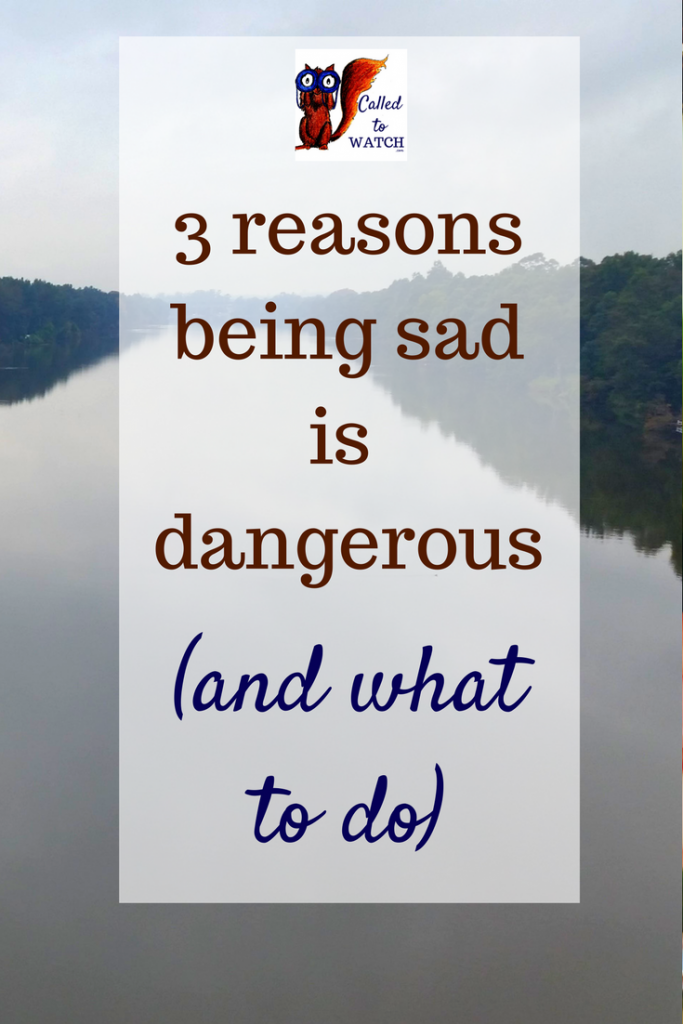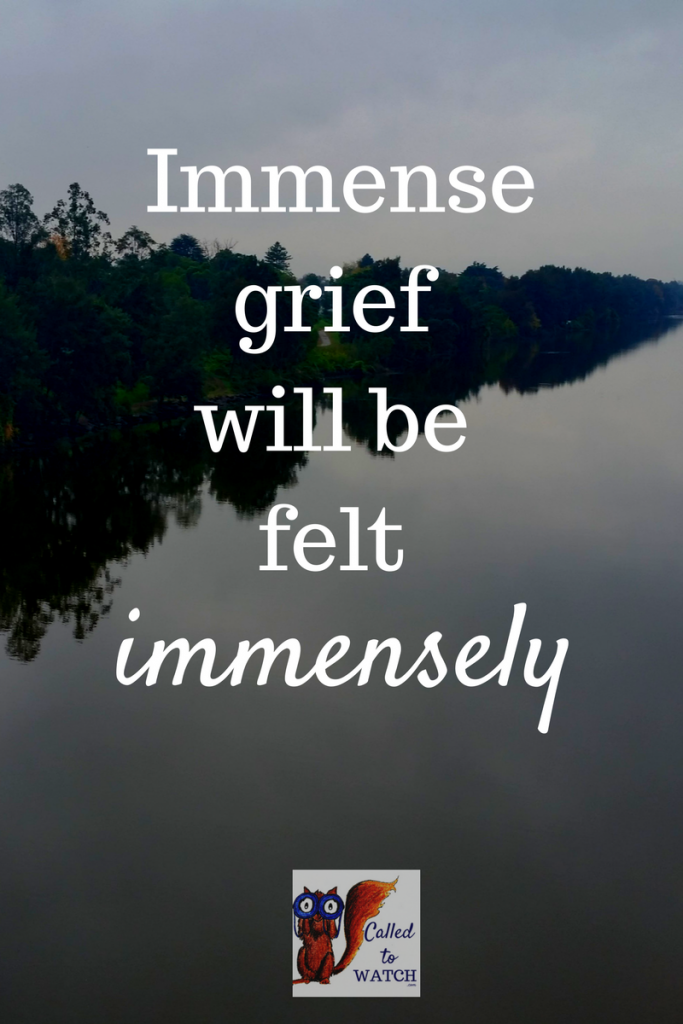It’s a good thing… yes?
Well – sort of.
Sadness can be restrictive
Strange as it may seem, having mixed emotions can actually be a saving grace.
If we are sad over our Loved One’s suffering, but simultaneously frustrated at the doctors, angry at God or jealous of others, no one feeling has complete control.
After all, we’re only human, and cannot plumb the depths of ‘anger’ at the exact same time as we are reaching into the extent and intensity of ‘grief’.
With many emotions comes also many options for relief, more opportunities for someone to say ‘me too’.
Yet when we are simply sad, it can become all-consuming. We can easily develop ‘tunnel vision’, and our sadness may push aside every other happiness.
In one sense that’s okay. It’s not wrong to feel grief, and immense grief will be felt immensely.
But it can also be harmful, because we all need some measure of distance.
A glimpse of the bigger picture, a vague realisation that there are different joys and different challenges beyond ours. Without this, not only do we lose all perspective, and hope, it’s also easy to lose our ability to emphasis with others, or rejoice in God’s eternal plans.
Sadness can turn us inward so that we focus only on ourselves.
Immense grief will be felt immensely – tweet!
Sad can lead to other emotions
No emotion lasts forever, even sadness.
It’s all too easy for our simple grief to spiral into anger, frustration, bitterness or discontentment. This is because (naturally) we don’t want to be unhappy forever. And so we start to ask what we can do to feel happy – or rather, what can other people do.
It’s easy to become angry at God: how dare he let us experience this? Why isn’t he fixing our sadness?
Or frustrated at others: why don’t they understand? Why aren’t they trying harder to relieve our sadness? Or even furious at ourselves: how dare we feel sad?
We need to be brave and strong.
Sadness can lead us to discontentment and anger.
What other emotions normally follow your sadness?
Sadness can lead us to seek happiness
This seems like a paradox.
After all, what is wrong with happiness? Surely it is only normal to hunt for joy in the face of tragedy?
Let me clarify: it is good to hope for happiness if we are looking for it in the right places. But all too often, the experience of sadness provokes us into searching for joy where is should not exist.
In the midst of grief it’s easy to seek satisfaction in being a hero. We might use our sadness as an excuse to lash out at others, or shun their offers of help, choosing to trust only in our own capabilities.
Or we might climb onto our moral high-horse, and seek consolation in the fact that we are sad and others are not. We begin to believe that we are better people because of our personal tragedy. We are more authentic, more experienced, more worldly-wise or more spiritual.
There are a multitude of places we can seek relief from our sadness. Other people, medical advances, distractions, entertainments, the list is unending. Yet the reality is, all of these offer false hopes and shallow comforts.
And so, sadness can lead us on a fruitless search for joy.
But I can’t help being sad!
Fair enough, neither can I.
After all, sadness is not something we can bottle up and pack neatly away, nor should we.
And yet it can be dangerous. So what do we do?
Be aware.
I wrote this list to explain that sadness can turn sour. Grief is not simple.
Being conscious of this is most of the battle. It’s so tempting to believe that sadness is a valid excuse for any action or any thought, and yet that is not the case.
“In your anger do not sin.” I think we could rewrite this: “In your sadness do not sin.” The premise is the same: do not let an emotion change your perspective, desires or loves.
It’s so hard.
And so here are a few tips I’ve found most helpful:
Wait it out – sadness is awful, but it will pass. Keep living, as much as you can. Keep loving, as much as you can. Don’t fight against it so ferociously. Grief is a natural reaction, even if it is unpleasant.
Seek God – you may feel your sadness is so thick that you cannot see Him, but He is there. It takes effort to keep actively seeking Him. It’s a struggle against our natural inclinations to give up on Him as soon as He stops making us ‘feel’ happy. But it’s worth it, because there will come a day when we will look on Him again.
Share with others – this is so, so hard. Sometimes we don’t like the perspectives others bring. We are afraid they will trample on our grief, and you know what? They might. But even so, we will gain perspective and a reminder that we are not the only human alive, and grief is not everything.
Other helpful posts:
Why I think it’s okay to grieve in church
What I learnt when I cried in church
What to do when chronic illness makes you angry
Go ahead and grieve
Weep in sadness, admit your grief. Cling onto the reality that even if grief leads us to sin God is enough. There is no life too destroyed, not sorrow too deep, that God cannot build it up again.
After all, “Jesus wept.”
// Have you struggled with grief or do you know someone who is struggling? Would you send them this post? Why, why not?
Comment below or join the conversation here!
This is a follow-on from the earlier post: 4 reasons admitting we are sad is not that easy
PS: Enjoyed the post above? Get the next one delivered straight to you! Sign up for email notifications
I’m also on Facebook, Pinterest & Twitter! Meet me there for more interesting reads, resources and community.



